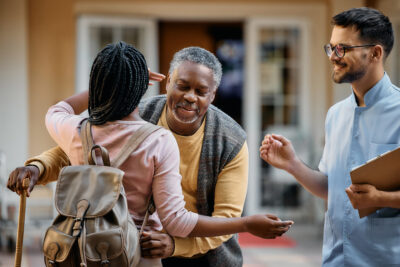Too often, people call themselves “safe” because they mean well or love children. But love without responsibility can still cause harm. Being a Saf

Too often, people call themselves “safe” because they mean well or love children. But love without responsibility can still cause harm.
Being a Safe Adult is not a badge you wear. It’s a commitment you live.
It’s daily, intentional, and accountable.
Here are the Core Commitments of a Safe Adult—especially when working with or caring for children and youth:
🧠 1. I Commit to Doing the Work on My Own Biases
I know that I carry beliefs, wounds, and assumptions from my upbringing, culture, and life experiences.
I don’t ignore them—I examine them.
I stay open to learning and unlearning, especially when it comes to race, geography, gender, ability, and other differences.
🔄 2. I Commit to Ongoing Training and Supervision
I don’t rely on instinct or memory. I seek out education, trauma-informed resources, and feedback.
I am open to coaching, correction, and growth.
💬 3. I Commit to Listening Without Dismissing or Shaming
Children don’t always have the words—but they always have the wisdom.
I listen to understand, not to judge.
I stay present, even when I’m uncomfortable.
🛑 4. I Commit to Honoring Boundaries—Including My Own
Safe adults don’t overstep, overshare, or overburden children.
I model healthy boundaries so children can learn to set their own.
🔐 5. I Commit to Protecting Privacy and Dignity
I avoid sharing a child’s story without consent.
I avoid treating trauma as gossip.
I protect children’s dignity in every space—especially when no one else is watching.
📣 6. I Commit to Speaking Up When Something Feels Wrong
I don’t stay silent to protect my comfort, reputation, or relationships.
If I witness harm, neglect, or red flags—I act, report, and follow through.
⏳ 7. I Commit to Being Consistent and Reliable
Children learn trust through what we do, not what we say.
I show up when I say I will.
I follow through on promises.
And when I can’t—I name it and take accountability.
💗 8. I Commit to Centering the Child’s Safety Above My Ego
Being “safe” doesn’t mean always being liked.
It means being trusted.
Even when a child is upset with me, I choose their safety over my need to be praised, needed, or thanked.
🌍 9. I Commit to Creating Space for Every Child’s Full Humanity
No child should have to shrink, code-switch, or perform to feel seen.
I make space for joy, anger, curiosity, grief, and complexity.
I believe children are whole—even when they are hurting.
🕊️ 10. I Commit to Rest, Reflection, and Renewal
Safe adults also care for themselves.
I rest when I need to.
I reflect when I’m reactive.
I return to this work with humility and a heart for justice.
🧷 Final Thought:
Being a Safe Adult is not a certification—it’s a daily devotion to protecting children with love, truth, and action.
If we want children to believe the world can be safe, we must begin by becoming safe ourselves.